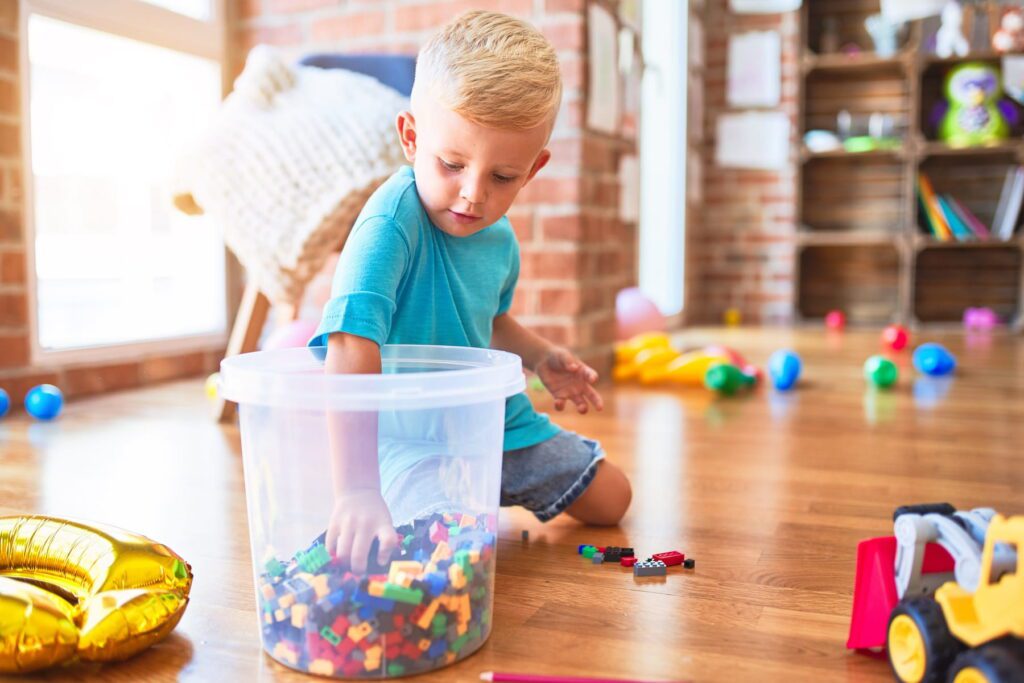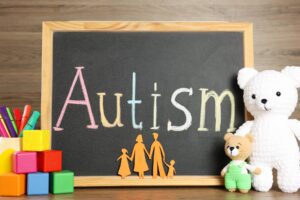Finding the right activities for young children with autism can make all the difference in their development and overall well-being.
Many children on the autism spectrum experience heightened sensory sensitivities, which can make certain environments or tasks overwhelming. However, there are plenty of fun and engaging sensory-friendly activities that provide a comfortable space for children with autism to explore, learn, and grow.
Here are some of the best sensory-friendly activities for young children with autism:
Sensory Bins
Sensory bins are a great way to stimulate a child’s senses while keeping them engaged in play. You can fill a bin with materials like rice, beans, sand, or water beads and encourage your child to explore by touching, pouring, or sifting through the contents. Adding small toys, scoops, or spoons can further develop their motor skills and creativity. The tactile stimulation can be both soothing and fun, offering a safe sensory experience.
Calming Water Play
Water play can have a calming effect on children, making it a wonderful sensory-friendly activity. Set up a small water table, or simply use a sink or bathtub filled with water and toys. You can add cups, funnels, or sponges to allow your child to pour, squeeze, and splash, engaging their senses while helping them relax. Warm water is often especially soothing for kids with sensory sensitivities.
Soft Play and Ball Pits
Soft play areas, including foam mats, pillows, and ball pits, provide a safe environment for children to explore movement without the risk of injury. A ball pit allows for full-body engagement, which can be both stimulating and soothing for a child with autism. The soft textures and gentle pressure can help meet their sensory needs and provide a space to expend energy.
Arts and Crafts with a Sensory Twist
Arts and crafts are always a fun way to encourage creativity, but you can make them sensory-friendly by incorporating different textures and materials. For instance, using materials like textured paper, soft fabric, or puffy paint can add tactile elements to a simple art project. Playdough or modeling clay can also be a great way for your child to engage their senses while practicing fine motor skills.
Bubble Play
Blowing and catching bubbles is a simple yet magical activity for children. The act of blowing bubbles can help with oral motor development, while the visual appeal of watching bubbles float and pop can be mesmerizing for children with autism. Try using different sizes of bubbles or bubble wands to keep the activity interesting and engaging.
Outdoor Nature Walks
Spending time in nature offers an excellent sensory experience in a calming setting. Going for a walk in a quiet park or garden allows your child to explore different sounds, sights, and textures without overwhelming stimuli. Encourage your child to touch leaves, listen to birds, or watch the movement of water in a stream. Being in nature can have a grounding effect, making it one of the most beneficial sensory-friendly activities.
Weighted Blankets or Sensory Swings
For children who enjoy deep pressure, a weighted blanket or sensory swing can be incredibly soothing. Weighted blankets provide gentle pressure that helps with self-regulation, while sensory swings give children a feeling of being cradled. These activities can be particularly helpful in calming a child who is feeling overstimulated or anxious.
Sensory-friendly activities provide a safe way to engage your child’s senses.
From sensory bins and water play to arts and crafts and nature walks, there are plenty of options that offer both fun and developmental benefits. The key is to find activities that cater to your child’s unique sensory needs and preferences, creating positive experiences that help them thrive.
Ready to get started?
If your child is aged 18 months to 6 years and navigating the journey of ASD, join us in a supportive environment where we focus on enhancing independence, communication, and social skills. Let’s work together to improve your family’s quality of life. Contact us today to start your journey with evidence-based, early intervention ABA therapy tailored to your child’s unique needs.




